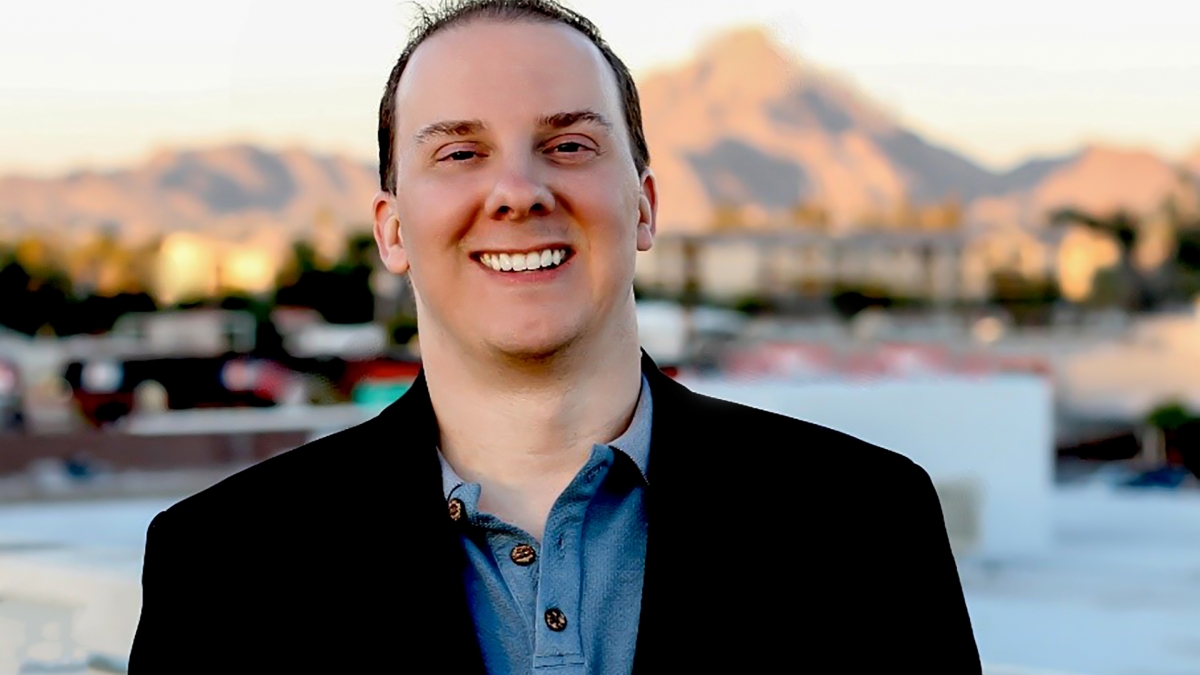Searching for a job during a pandemic

Eric Knott is a lecturer in the W. P. Carey School of Business at Arizona State University and a leader in human resources across Arizona.
Eric Knott, a lecturer in the W. P. Carey School of Business at Arizona State University and Department of Psychology alumnus, is doing his best to let ASU students know how valuable his experience in psychology has been to his career.
He recently volunteered his time to share a lecture called, “Now What?” for psychology undergraduates and recent alumni, talking about how an ASU psychology degree positions them for career success, even during economic downturns.
Knott has previously worked for the internationally renowned K–12 school BASIS, nonprofit organizations like Goodwill and corporations like Target and Cox Communications. He also served as the president of Society for Human Resource Management of Greater Phoenix and owns an HR consulting firm in Phoenix.
Many recent graduates have found that jobs they lined up are now gone as a result of the pandemic. Knott said it can be a very anxiety producing event to no longer have a plan and that he wanted to emphasize that graduates are actually still in a very positive place, even now.
“I wanted to let them know that the world is your oyster – you can do anything and you are in demand, even in spite of a hiring downturn. Businesses understand that,” Knott said.
In January 2020, unemployment was at record lows across all education levels at approximately 3.6%. Now in August 2020, unemployment peaked at 14%. Knott emphasized that students with a degree were still experiencing unemployment levels around the 5 to 6% mark — meaning that there is still plenty of opportunity for students with a college degree.
“A question that many psychology students may be asked is, 'What are you going to do with your degree?'” Knott said. “The hidden answer is that the skills you learn as a psychology major apply to almost every job.”
According to Knott, American businesses value psychology majors in many hiring situations because of the skills psychology students learn.
“Psychology is at the root of every career. It is likely more difficult to find a job that psychology isn’t related to than it is to find one where it is,” Knott said.
The journey to psychology
Knott began his academic career searching for where he fit in. He tried out six different majors, including biology and meteorology, but was struggling to find success. While he loved biology and meteorology, he joked they did not love him back.
His turning point was a class project in which he was sent to Flagstaff to take weather readings on the hour, every hour. He was sitting in his tent late in the evening when a monsoon hit. As lighting struck repeatedly and flash floods appeared around his tent, he decided he needed to change his major. Knott committed to exploring a series of 101 classes.
Psychology 101 was not easy for him, and he loved everything about it.
“The textbook was fascinating, and everything related to my real life. I even could motivate myself to read through an entire health psychology textbook and I absolutely loved it,” Knott said. “But after graduation, I found myself asking what do I do now?”
Knott did what he now recommends to recent graduates. He attended a career fair and spoke to everyone. He left with eight job offers from larger companies and ended up joining Target because the company’s culture seemed closely aligned with what he wanted to do.
“It turns out, HR is just psychology for business,” Knott said. “Be proud of your degree — you are graduating from one of the nation’s top universities during a time when student unemployment is low — take advantage of it.”
To increase opportunities for students to interact with alumni like Knott, the Department of Psychology is launching a new mentorship initiative this fall for undergraduates and invited all former alumni to be part of it.
More Science and technology

Google grant creates AI research paths for underserved students
Top tech companies like Google say they are eager to encourage women and members of historically underrepresented groups to…

Cracking the code of online computer science clubs
Experts believe that involvement in college clubs and organizations increases student retention and helps learners build valuable…
Consortium for Science, Policy & Outcomes celebrates 25 years
For Arizona State University's Consortium for Science, Policy & Outcomes (CSPO), recognizing the past is just as important as…